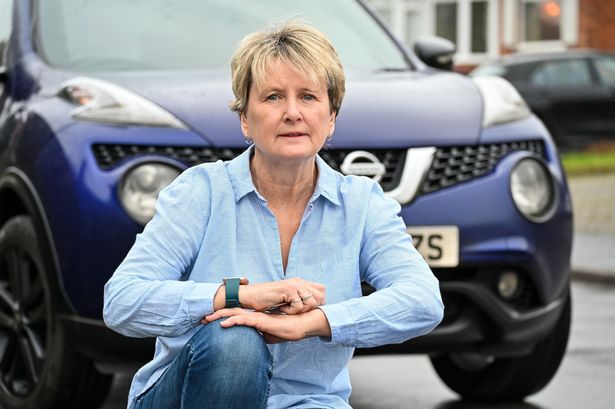Angela Jones, a 60-year-old woman, found herself embroiled in a protracted and frustrating dispute with a private parking firm after being issued a hefty £170 fine for overstaying the allotted time in a car park by a mere 65 seconds. This seemingly trivial infraction sparked a months-long battle that consumed her time, energy, and emotional well-being, highlighting the often-aggressive tactics employed by some parking companies and the difficulties faced by individuals in challenging unfair or disproportionate penalties. The incident began during a routine errand run when Mrs. Jones parked in a privately managed car park. Unbeknownst to her, her brief overstay, barely exceeding a minute, triggered the automated system, resulting in the substantial fine. This seemingly minor transgression spiraled into a significant source of stress and anxiety, demonstrating the power imbalance between individuals and large corporations and raising questions about the ethical practices within the private parking industry.
Upon receiving the penalty notice, Mrs. Jones was understandably shocked and dismayed. She meticulously recounted her visit to the car park, certain that she had not significantly exceeded the time limit. The parking firm, however, remained unmoved, insisting on the validity of their automated system and demanding full payment. Mrs. Jones felt victimized by what she perceived as an unjust and unreasonable penalty, compounded by the impersonal and inflexible approach of the parking company. The situation became a distressing burden, occupying her thoughts and causing significant emotional strain. The seemingly insurmountable task of fighting the fine began to feel like an uphill battle against a powerful and indifferent entity. The experience underscores the vulnerability of individuals faced with automated systems and the often-challenging process of seeking redress.
Determined to challenge the unfairness of the situation, Mrs. Jones embarked on a lengthy and arduous appeals process. She meticulously gathered evidence, including timestamps from receipts and witness statements, to support her claim. However, the parking firm continued to reject her appeals, citing the accuracy of their automated systems and adhering to their strict terms and conditions. This protracted back-and-forth exchange added to Mrs. Jones’s frustration and anxiety, highlighting the often-opaque and convoluted nature of appealing parking fines. The lack of empathy and understanding from the parking company only served to exacerbate the situation, leaving Mrs. Jones feeling increasingly helpless and demoralized.
As the dispute dragged on, Mrs. Jones began to research her rights and seek advice from consumer protection organizations. She discovered that she was not alone in her experience, finding numerous online forums and support groups filled with similar stories of individuals battling unfair parking charges. This realization provided a sense of validation and empowered her to continue her fight. Armed with new knowledge and the support of others who had faced similar situations, Mrs. Jones became even more determined to challenge the parking fine, not just for herself but also for others who might be facing similar injustices. The collective experience of those who had navigated the complexities of challenging parking fines provided a valuable resource and a sense of community in the face of a shared struggle.
The prolonged battle with the parking firm took a significant toll on Mrs. Jones’s well-being. The constant stress and anxiety affected her sleep, appetite, and overall health. The situation, which began with a minor parking infraction, had escalated into a major source of distress, highlighting the potential impact of such disputes on individuals’ mental and emotional health. The seemingly insignificant 65 seconds had become a symbol of a larger issue, representing the power dynamics between individuals and corporations and the often-dehumanizing experience of dealing with automated systems and inflexible bureaucracies. The case of Angela Jones serves as a potent reminder of the need for greater transparency and fairness within the private parking industry.
Ultimately, after months of relentless effort and with the support of consumer advocacy groups, Mrs. Jones’s persistence paid off. The parking firm finally agreed to drop the charges, acknowledging the extenuating circumstances and the minimal nature of the overstay. While relieved by the outcome, Mrs. Jones remained deeply affected by the ordeal, having endured significant stress and anxiety throughout the lengthy dispute. Her experience highlights the need for greater regulation and oversight within the private parking industry to prevent similar situations from occurring and to protect consumers from unfair and disproportionate penalties. The case of Angela Jones serves as a cautionary tale and a call for greater transparency, accountability, and empathy within the often-controversial world of private parking enforcement. Her victory, though hard-won, offers a glimmer of hope for others facing similar battles and reinforces the importance of challenging unfair practices.














